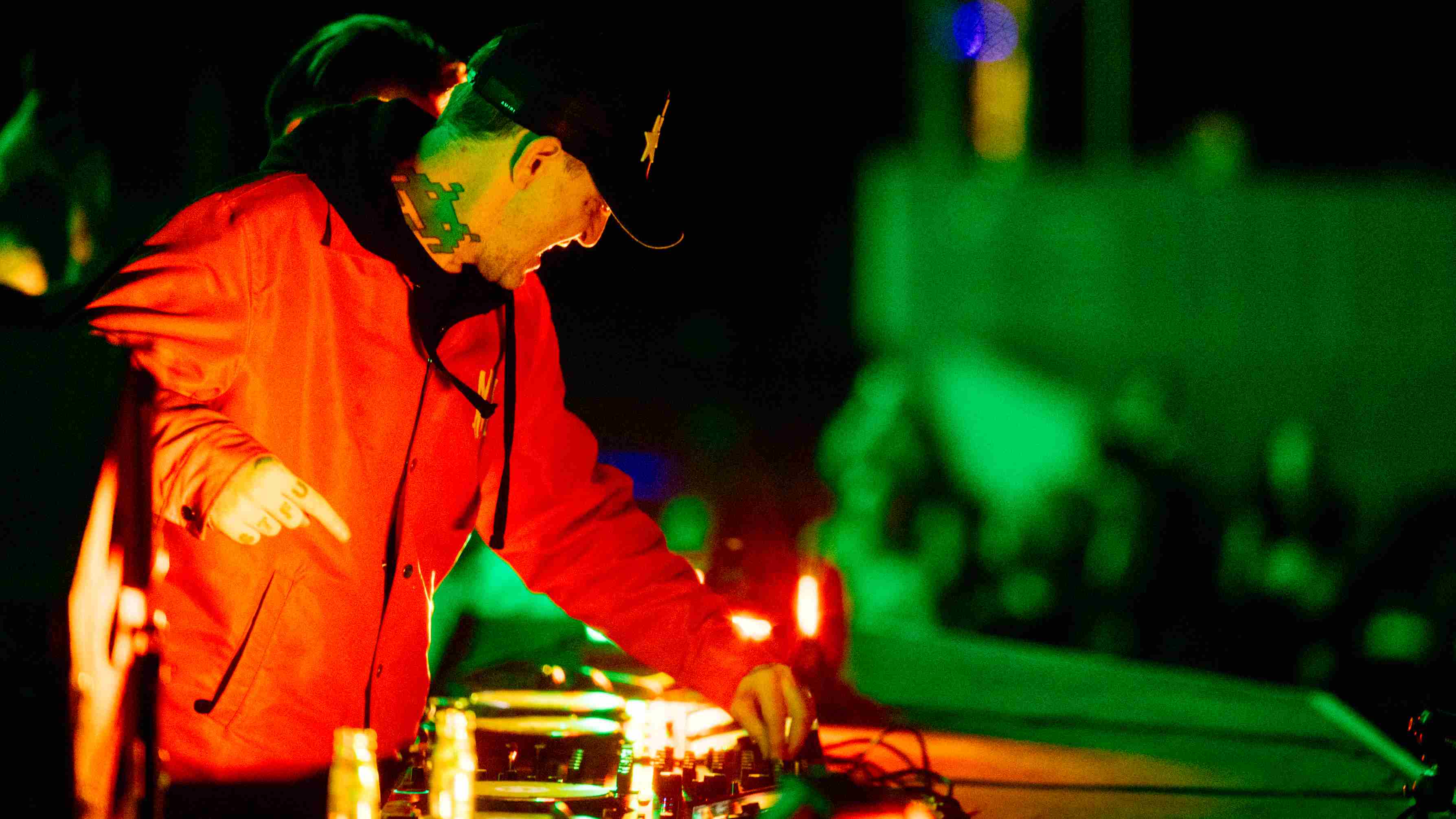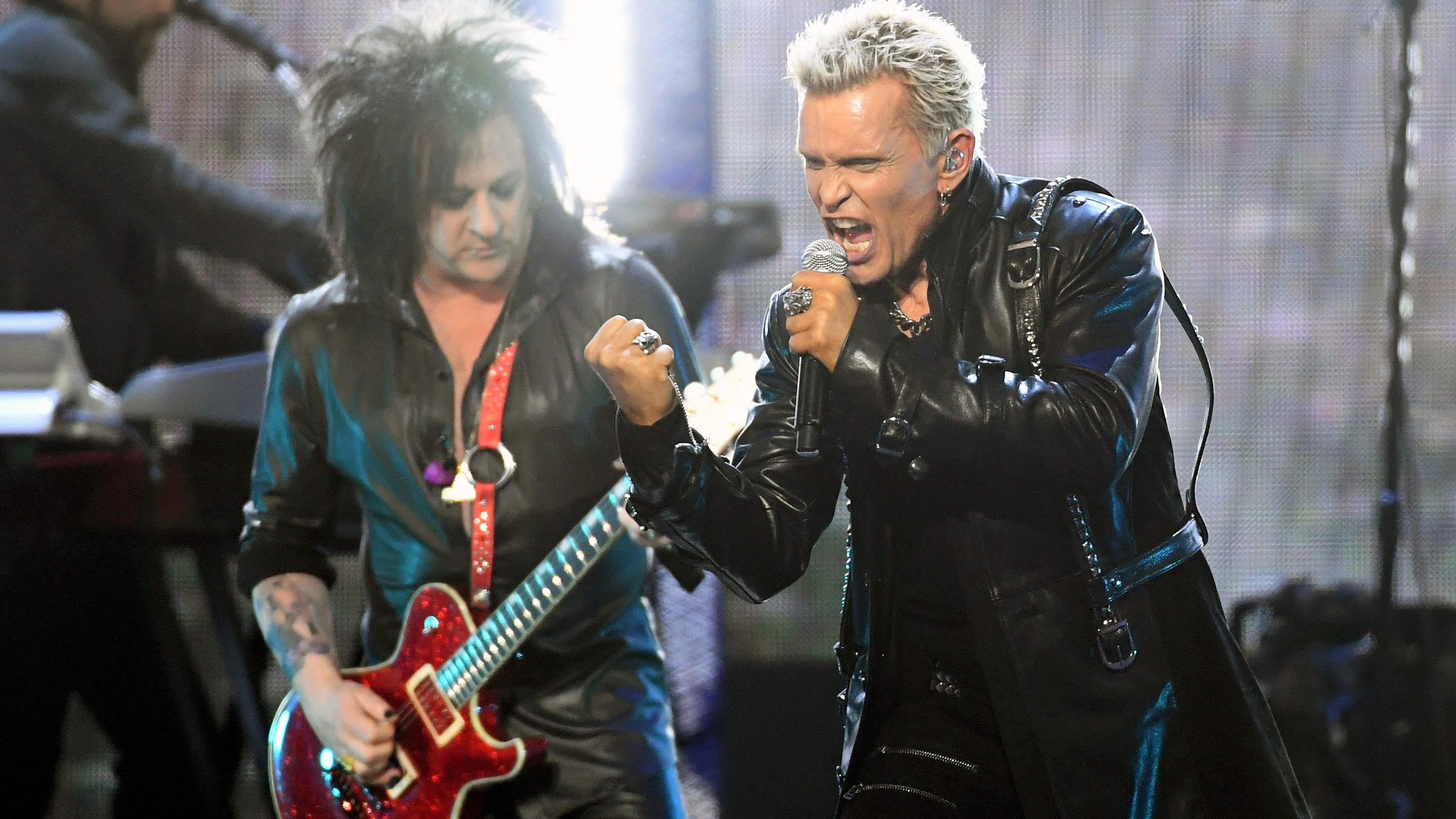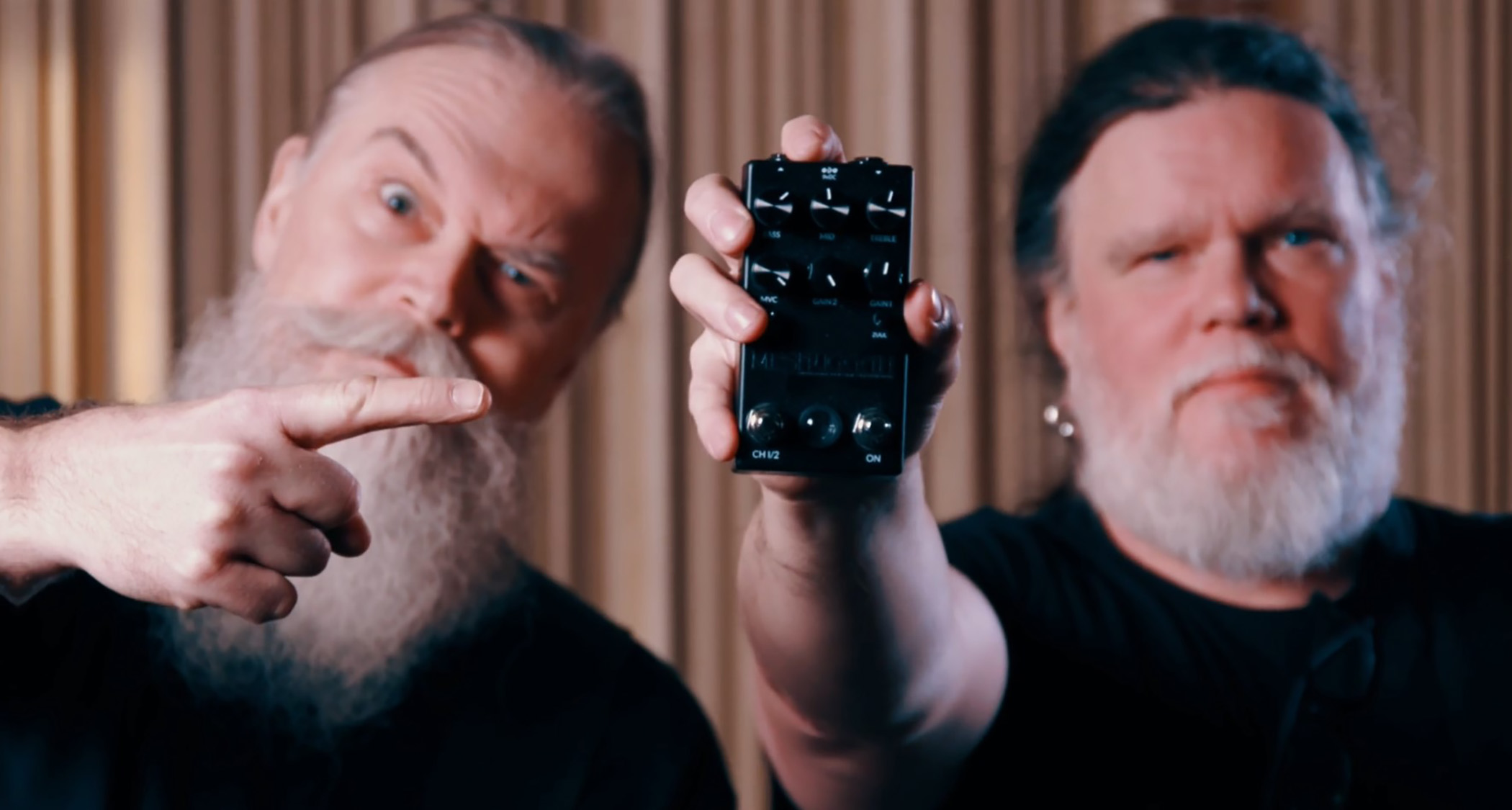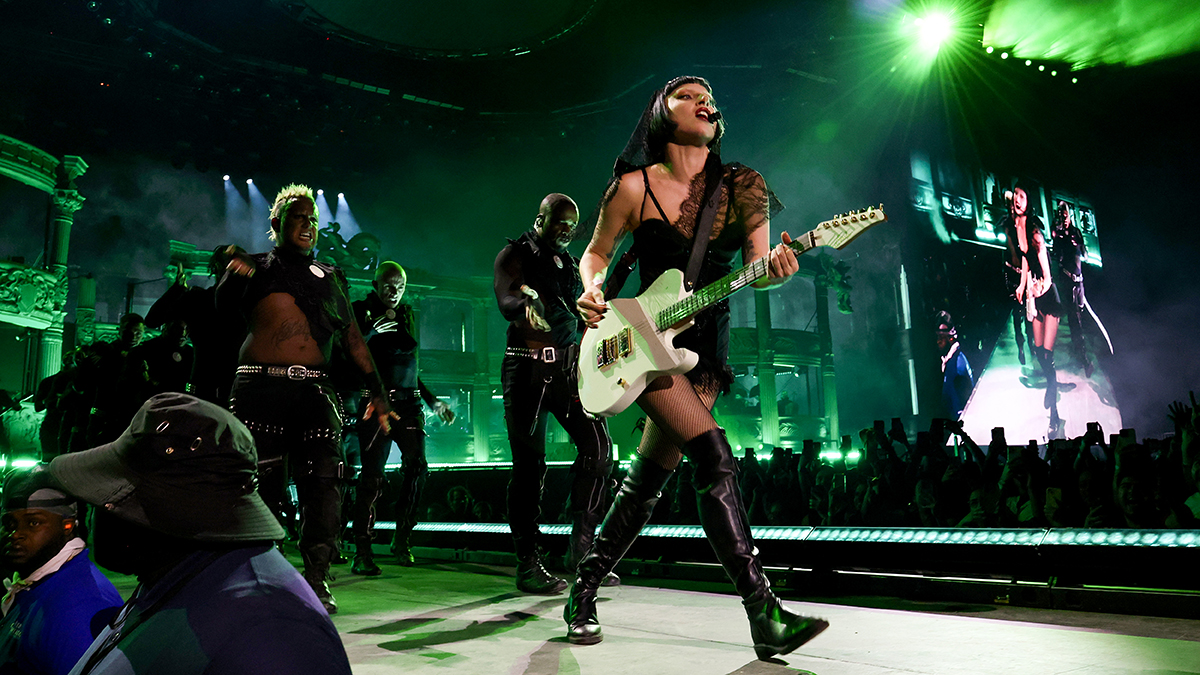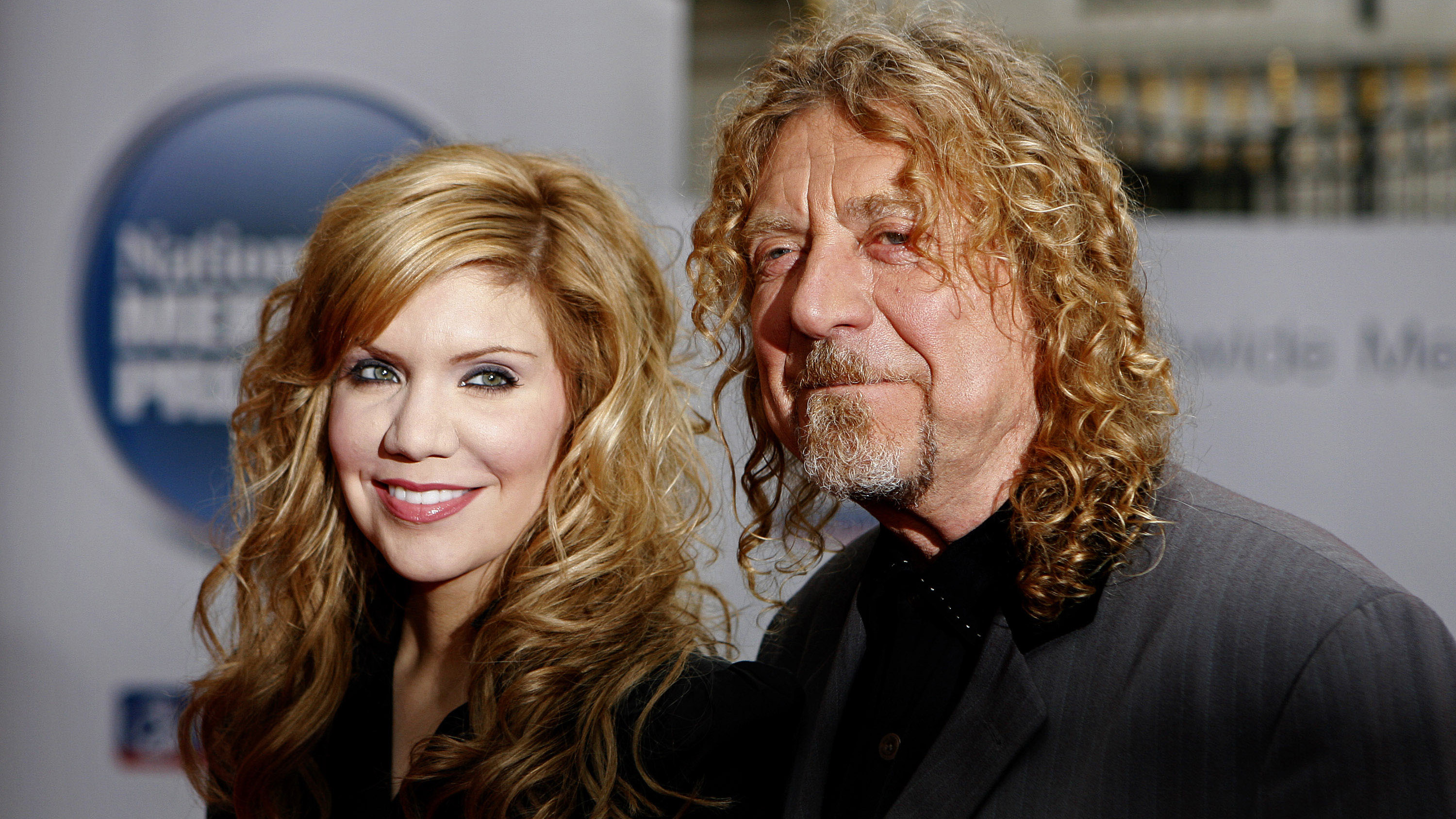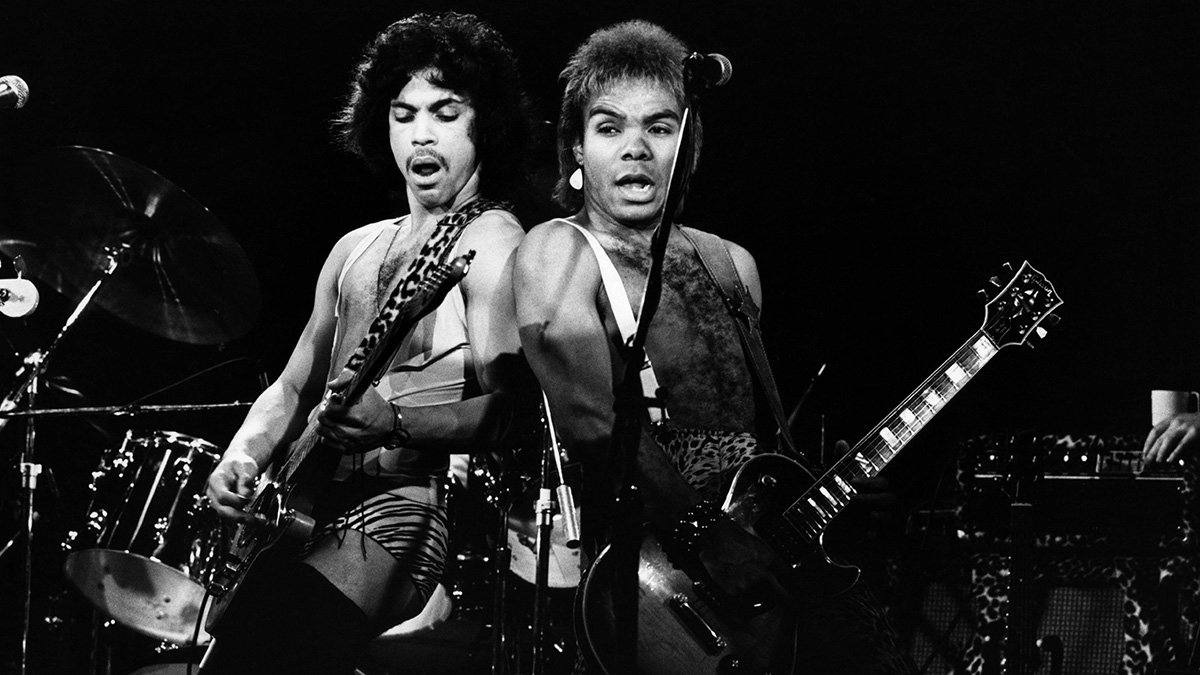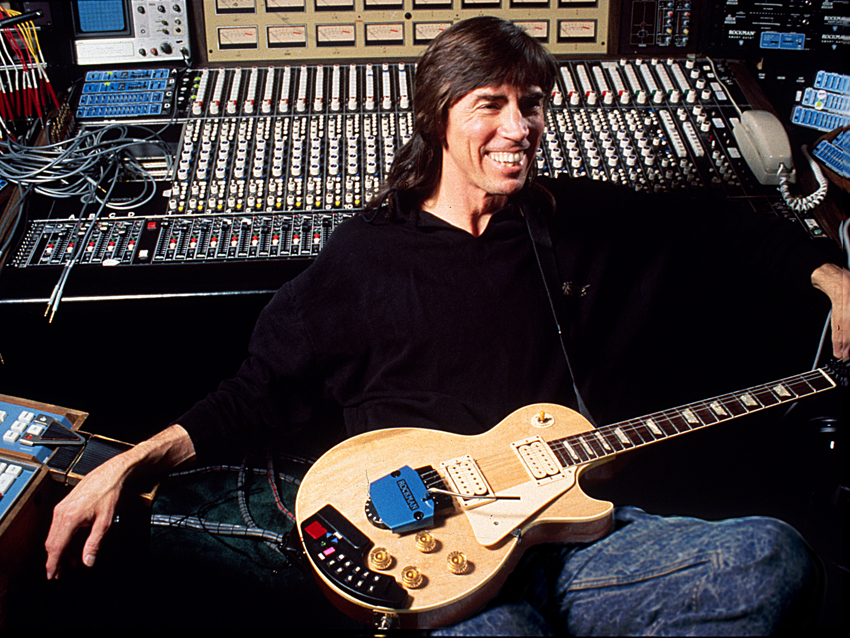
Tom Scholz talks recording, his signature Gibson Les Paul and Boston's new album
Asking Tom Scholz to describe the pressure he feels while working on a new Boston album requires a considerable amount of context: Since 1976, the guitarist, who writes, produces and performs as a virtual one-man studio band – refining a sound that began as a highly individualistic means of expression and became hailed as innovation – has released only handful of discs. It's a pace that has amounted to, beginning with Boston's second full-length, 1978's Don't Look Back, roughly an album each decade.
“The pressure is all self-imposed," Scholz explains, "and it’s to live up to the expectations of people who are going to shell out their hard-earned cash to listen to the music. It’s actually more than that, though. I wouldn’t want to make a record that didn’t live up to my expectations. So the pressure comes in trying to write and play and produce something that sounds good enough to be something I would want somebody else to hear."
Expanding on that thought, Scholz, who admits to compiling "thousands of hours" of cassettes – yes, actual tapes – full of ideas and variations on songs that will never see the light says that he can also be extremely easy to please. "I can sit down at a piano or with a guitar and just chug away for hours and be perfectly content with whatever comes out," he says. "But when it comes to something that somebody else is going to listen to, then I do feel a great deal of pressure to do something that’s exceptional, at least in what I consider to be at the limits of what I can do.”
Scholz is a fascinating and somewhat contradictory fellow: a highly successful creator of populist entertainment who hasn't paid attention to the radio since the mid-'70s and couldn't even begin to tell you who's on the current Top 10; a sonic innovator who remains slavishly devoted to two-inch tape and analogue gear; and the kind of guy given to an almost "aw-shucks" response when you tell him that you like his new record.
The forthcoming Boston release, Life, Love & Hope (due out December 3rd), once again finds Scholz to be a virtuostic choreographer of guitar riffs, solos and textures. Wickedly dazzling six-string masterstrokes of such a high order could overwhelm most songs, but the 11 tracks on the new set are as rapturous and hyper-melodic as anything the guitarist has done before. With rare exception, it's a Scholz solo instrumental show (band member Gary Pihl pops up occasionally on guitar, most notably contributing a blissed-out lead on the title track). Vocals are handled by an array of singers, such as David Victor, Tommy DeCarlo, Kimberly Dahme and Scholz himself, but the record also features the last performances of the late Brad Delp, who committed suicide in 2007.
The famously press-shy Scholz sat down with MusicRadar to discuss the recording of the new album, the electric and acoustic guitars he uses, his opinion of other effects-loving sonic architects (his answer will surprise you), and another recent offering, the Gibson Collector's Choice #10 Tom Scholz 1968 Les Paul.
The overall theme of the album holds true to the title – Life, Love & Hope. Your work is pretty much always rooted in optimism. Is it hard sometimes to maintain a positive outlook, especially when making music?
“The music makes it easier, to be honest with you, because music has always been my escape. If things aren’t going well, music is what I turn to so I can get away from it, to take my mind somewhere else. The music actually does make it easier. I… I don’t know if that’s an answer or not." [Laughs]
Sure, it is.
“I’m very realistic in my outlook on everything in life. When I look ahead in my mind to see what’s going to happen next, I see the good, and I see the bad. I’m often criticized for being able to see what the worst possibilities are coming up, but truthfully, the only reason I can undertake a project like this is because I have hope. [Laughs]
“I think I have a good balance of optimism and pessimism – or realism – because if I didn’t, I would never last through a project, especially this one, which took so long. There were many, many times I thought, ‘How am I ever going to get this done?’ If I didn’t have hope, I wouldn’t have kept going.”
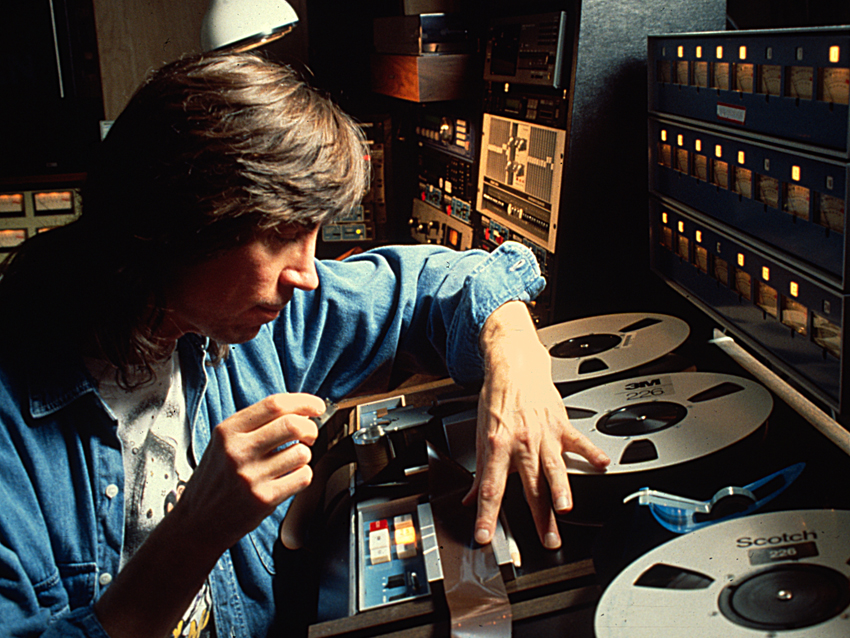
Tom Scholz talks recording, his signature Gibson Les Paul and Boston's new album
You recorded the album with all analogue gear. Aside from the warmth that many would say digital can’t reproduce, what do you like about analogue?
“First of all, let me emphasize that the sound of analogue gear is, of course, the main reason, and it’s more than just the warmth to me. Analogue gear is very realistic. If I’m listening to a two-inch tape or my mixdown tape in analogue, I can’t tell whether I’m listening to the input or the output. So the realism is what’s important.
“Worse than that, with digital – even with good digital with 24-bit resolution, which I’m forced to listen to [laughs], because I have to deliver it in a digital format at some point – I can listen to a song for months on end on analogue, and it’s always all analogue in the studio, but when I come to the end and I have to listen to it in a digital format, after a day I just don’t want to listen to it anymore. [Laughs] That’s the difference. It grates on my nerves after a while. Digital is really irritating after a spell.
“But there are other things I love about analogue equipment. It’s like the difference between driving a sports car with your analogue steering, accelerator and brake inputs versus trying to control it with a keypad and punching in numbers. You can imagine what that would be like.
“Analogue gear is very responsive. You can go back and forth very quickly, and you can do it by feel. You don’t to look at any numbers; you don’t have to input any data. Your fingers – and in my case, my feet, because I actually run the tape deck with my feet when I’m recording. My hands are busy, so I actually run the tape deck with one foot or another. Things like changing tone with equalization or setting delay and so forth, it’s so intuitive with analogue, where you just move something and the sound changes. Try doing that with digital and it takes forever, so there’s also a speed factor.
“I can do things so much faster in an analogue format, so when I have to do a digital work session for a mixdown or an edit, I always have the program running through my analogue gear as well, because I can find the right frequency, the right amount of level change, of tone change, delay time – whatever you want to do, I can find it so much faster with my ear. Doing this in digital, it wouldn’t have been a 10-year project; it would have been a lifetime project.”
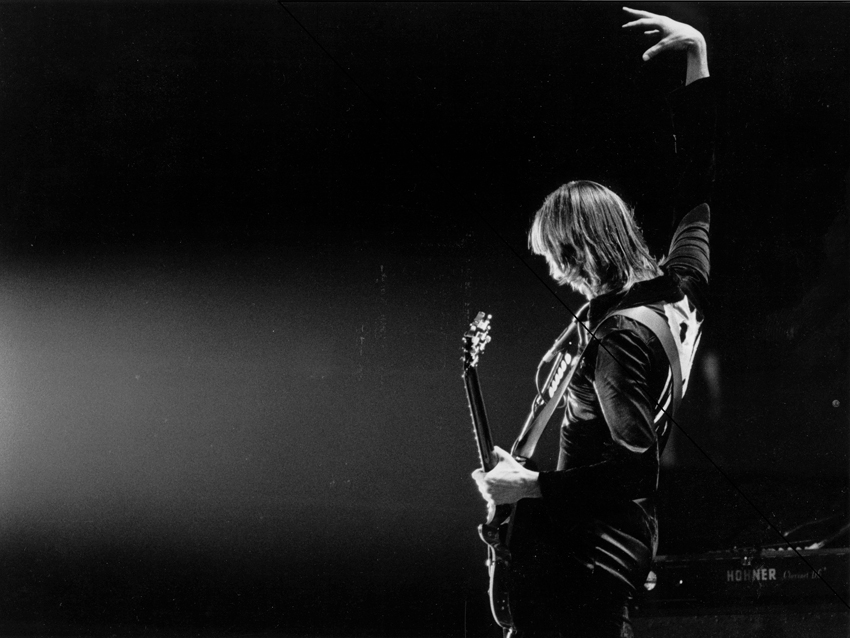
Tom Scholz talks recording, his signature Gibson Les Paul and Boston's new album
You helped revolutionize guitar effects with the Rockman. Have there been any tech pieces during the last 10 years that have impressed you?
“As I’m sure you’re aware, an awful lot of people who went to digital effects or other things have drifted back to the oldest things – the oldest tube amps, the oldest guitars [laughs]. Suddenly, my old analogue equipment is worth something. For a while it was worthless. Now, people are paying big bucks to find the old stuff that people used to use.
“I’m not a big fan of the newer things, especially digital things. There are two things that come to mind, though, when you ask that question: The first is speakers, especially for sound reinforcement – far, far better than they were 20 or 30 years ago. Just night and day better. Unfortunately, that’s been somewhat negated by the sudden emergence of digital mixing consoles, which just sound like crap. [Laughs] So, on the one hand, sound systems, the actual speaker interfaces, are so much better than they used to be, but they’re putting them through these horrible-sounding digital boards, and that drives me crazy.
“What I am impressed with is a digital device, which is a piece of software that’s available for various sound editing programs, for adjusting piece or speed. For instance, if you have a song that’s too slow, or if you want to change the tempo on something, the software that can change the pitch of a piano or a guitar part or anything else you might imagine is incredible – and practically seamless. Unfortunately, it’s only available in a digital domain. That, I have to say, is pretty impressive.”
Your guitar sound at times is like that of a “guitar symphony.”
“Thank you.”
I’m curious - was this something that you always had in your head, or did it come about through your experiments with recording?
“Both are correct, actually. Yes, I heard something in my mind that I was going for, which was possible to do by extensive multi-tracking of guitars, and keyboards sometimes. It did expand greatly once I began experimenting with multi-track recording – I discovered lots of things I didn’t know about creating that symphonic sound.
“The first clue to me was a long, long time ago. I had an early, early echo machine, I’ll call it; it was a tape drive with a couple of heads in it and vari-speed. I was just using it to put background on a guitar I was playing – I wasn’t even recording at the time. Something went wrong with the motor, and it started changing speed slowly up and down, and that’s when I realized what the possibilities were. [Laughs] With the second guitar being played at off-pitch and a different speed, that’s when I realized that I could do something really special with multiple tracking of guitars.”
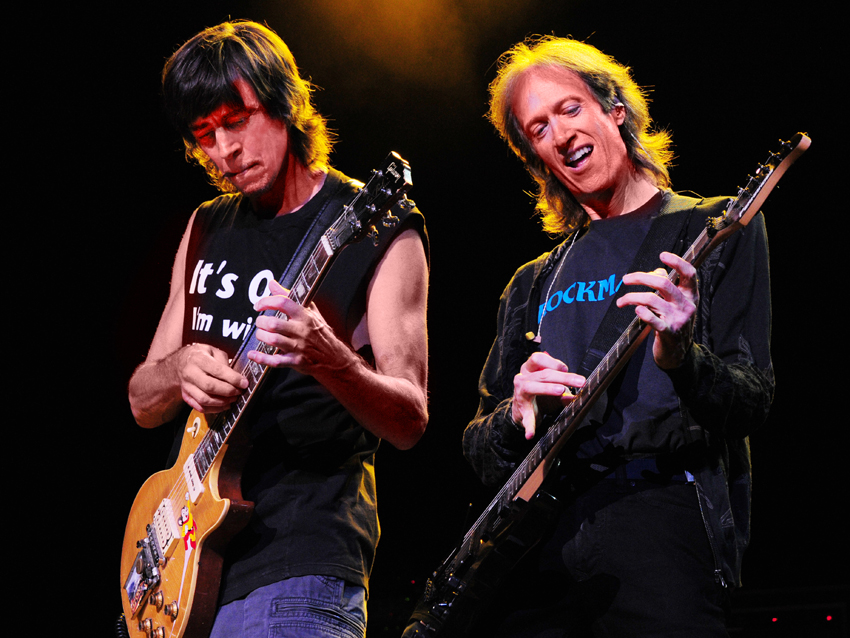
Tom Scholz talks recording, his signature Gibson Les Paul and Boston's new album
I don’t know if you have a “process” per se, but take me through the writing of Heaven On Earth – how it came to you, what popped into your head first, and how long it took to ultimately record.
“It was fairly typical. I had an idea for a little piece of a lick. I started playing the lick, and I heard where it was supposed to go, but as I tried to play it I realized that it was difficult to play because the chord formations required an open D for part of the lick. I developed the lick and the chord changes first, which is what I usually do.
“I’ll make a rough recording – I won’t even call it a demo, because it’s just a crude recording. I always use a cassette player; I have thousands of hours on cassettes of crude ideas. [Laughs] Then I’ll sing along to it, play along to it and find a melody that I like. Finally, I’ll write lyrics once I think I have a melody that works with it. That’s sort of the basic start, but in reality I’ll then go and actually begin a recording. I don’t ever make a demo – I just begin a recording.
“For instance, in that one, I had an idea for a song, I put it down, and it turned out to be all wrong. [Laughs] Then I’ll go and change the bridge, the chorus, and I’ll double the length of the synth; I’ll go, ‘Maybe an instrumental would be good here…’ It’s like three steps forward and two steps back, only it’s more like three steps forward and two point nine steps back. [Laughs] It’s a very slow process. That one took about six months over the course of about three and a half years. That’s pretty typical.”
What do you think when you read interviews with bands who say, “We knocked that song out in 20 minutes”? Are you envious, or do you say, “That’s just not my way”?
“It’s just different. Yeah, that would be nice, but for me, things come a lot more slowly and with a lot more work. I'm sort of used to it. It’s kind of been my life for everything I’ve done. When I was in school, I basically just worked from the moment I got up to when I went to bed. Mostly I didn’t go to class – because I didn’t have time to go to class! [Laughs] I was hitting the books and doing problem sets and trying to figure it all out.”
Was the song Last Day Of School always intended as an instrumental?
“Yes. When I first started working on it, I knew that it had to be an instrumental. I wasn’t sure that I was going to put the heavy guitars on it – it started out as just a keyboard piece. The keyboard part is pretty demanding, so I was a little hesitant about covering it up. But I really enjoyed playing guitar to it, so that became a dominant part of the arrangement.”
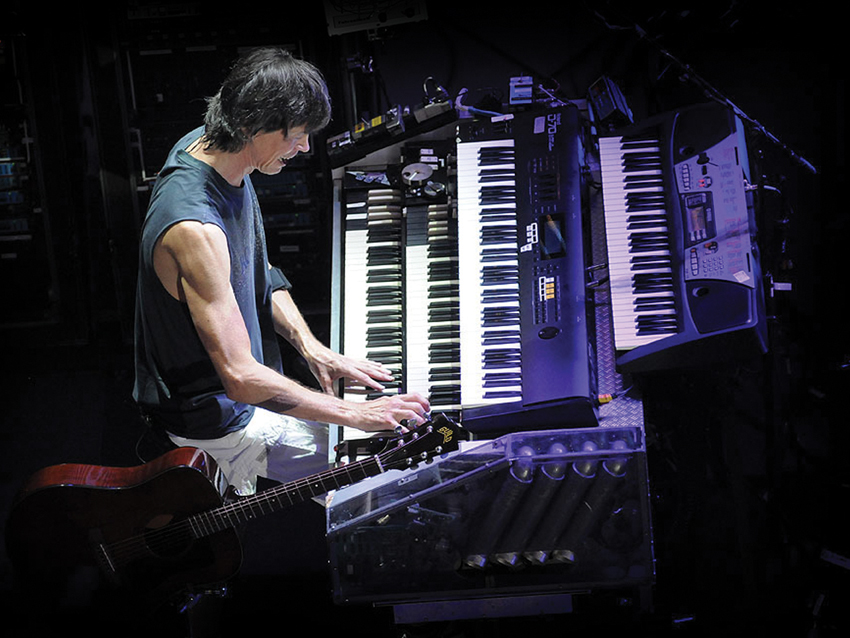
Tom Scholz talks recording, his signature Gibson Les Paul and Boston's new album
People don’t often talk about your keyboard playing. Does it come naturally to you, or is it more of a struggle than, say, guitar playing?
“No, it’s just the opposite. Keyboards have always been, for some reason, very easy for me. I rarely practice, although of course, I get my chops back together before any kind of performance. It’s always been very easy, though. Frankly, it’s a matter of getting muscle conditioning in my hands so that I can last through some of the more challenging parts.
“For instance, live we play a much longer version of Foreplay, and it’s all at maximum speed. When I first start out, I can only get through a third of it before my hand cramps up. [Laughs] I’ve had to go into training. But other than that, keyboards have always been easy. Guitar, on the other hand, has always been a struggle. Every time I pick up the instrument, I think, ‘Wow. Shouldn’t this be getting easier by now?’ It never does.”
Another thing that isn’t mentioned a lot is your acoustic playing. Love Got Away has a beautiful acoustic intro, and you do some gorgeous Spanish-flavored soloing on Didn’t Mean To Fall In Love –
“Yeah, my little flamenco imitation [laughs].”
You do that, too, on You Gave Up On Love. What guitars do you use, and what’s your process for recording acoustics?
“It’s really simple: I have an ancient Guild D25, which got smashed twice by mic stand road cases falling over. It’s been pieced back together again. And I have a Guild G212 12-string, which I’ve used on Amanda and Love Got Away. It’s my go-to 12-string guitar. For recording, I always use a [AKG] 414 and compress it very heavily. If noise floor is an issue during a very quiet part – for example, at the start of Love Got Away or on You Gave Up On Love – I’ll switch to an old [Electro-Voice] RE20, just for the portion where the noise floor is an issue.”
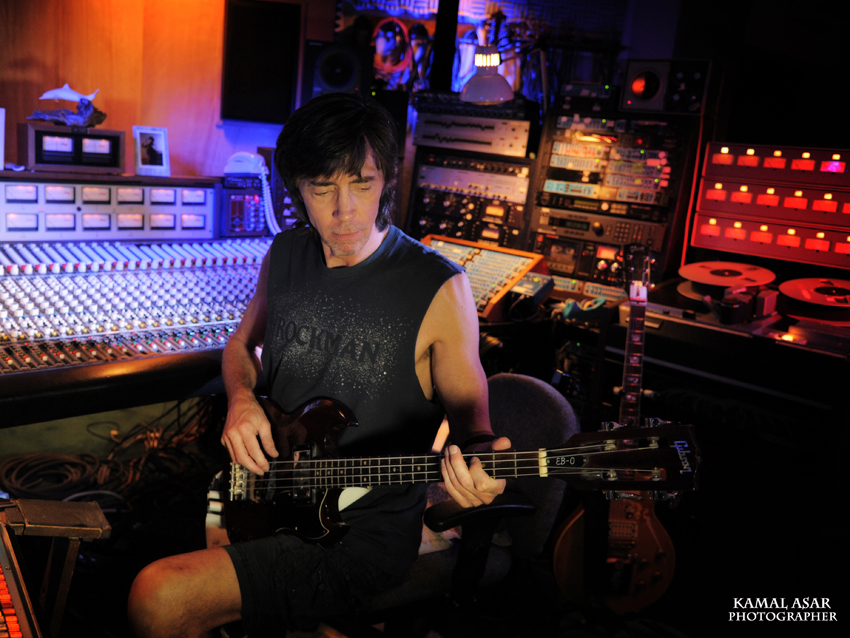
Tom Scholz talks recording, his signature Gibson Les Paul and Boston's new album
You’re one of a handful of guitarists who has such a recognizable sound that people know who it is within seconds. What’s your take on other such players like The Edge or Andy Summers? Players who also utilize guitar effects in a very unique ways…
“I have to confess: I don’t know who they are. I don’t mean to be disrespectful, but I don’t listen to any other music – not since about 1974. The only times when I’ll hear other music will be at the ice skating rink or the gym – you know, if I go out and somebody’s playing something. I don’t listen to the radio in the car, and I do that because I don’t want to be influenced. I do hear a little bit here and there – I know what modern rock and current pop sounds like because I’m exposed to it a little bit. The closest I can come to answering that question is, I can probably tell you when it’s an old Jeff Beck song or early Led Zeppelin – I can recognize Jimmy Page.
“I can tell you that I can always recognize a Boston song, even if it’s in a noisy place. I can hear that it’s Boston even before I know what song it is. If a Boston song comes on in a club or somewhere, I notice that it’s Boston, and the second thing I notice is what song it is.” [Laughs]
You feel the vibrations of it.
“I don’t know what it is. There is something – I hear the tone, and I go, ‘That sounds like Boston.’ And it pretty much always it.”
You might have answered this in a way, but when Nirvana –
“I’ve heard the well-known Nirvana song. I know who they are.”
So are you aware that they paid homage to Boston when they played the opening of More Than A Feeling before Smells Like Teen Spirit?
“It’s been debated whether it was homage or thumbing their nose. [Laughs] Regardless, Nirvana was, from what I’ve heard, a great band. I was really impressed by the couple of things I heard. Regardless of what the context was, it’s an honor to be heard in the same airspace as Nirvana.”
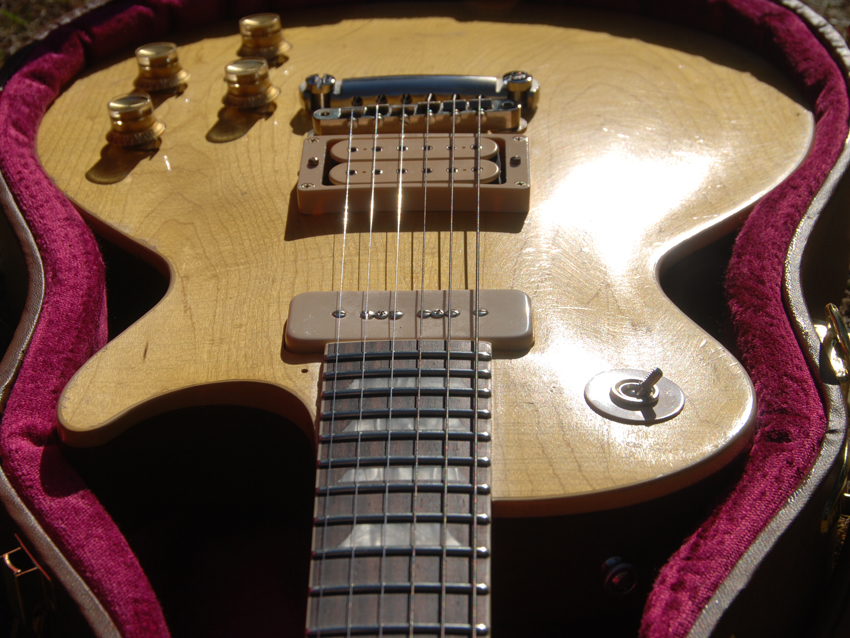
Tom Scholz talks recording, his signature Gibson Les Paul and Boston's new album
You’re pretty much a one-man band in the studio. The picture some people have of you is that of a “tortured artist.” [Scholz laughs] How true or untrue is that? Do you have long, sustained moments of solitary music-making bliss?
“Pretty much every day, at the end of the day when I get to listen to what I’ve done, and oftentimes during a session when I sit back and listen – by the way, I would call it anything but ‘tortured.’ It is an enormous amount of work. It is one percent inspiration and 99 percent perspiration. It can be angst-ridden, especially recording in analogue, because it’s like oil painting: One bad brushstroke and you don’t get to go back.
“There’s pressure, and there’s always this great anticipation of getting something that I hear, and I can’t really relax until I’ve managed to get it, or managed to get something else by accident that I like even better. But there are, over and over again while I’m working every day, I’ll make a quick recording of a part, maybe off of the tape or I’ll have a couple of different choices of ideas, and I have to pick one.
“What I do is, I’ll record them on a cassette recorder, and then I’ll sit back and become a listener, and in those moments it’s wonderful. [Laughs] I get to sit back, and it’s music that I love. Of course, most of it never sees the light of day, but I get to hear all of it. I really enjoy that part of it. It’s exciting and it’s blissful – I think you’ve got the right word.”
Let’s talk about your signature Gibson Les Paul.
“Oh, yes, that was very exciting. It was quite an honor when they picked me; of course, I’ve been shocked about everything that’s happened for me in the music business. [Laughs] I didn’t get into the music business till I was almost 30, so by that point, I figured that I was never going to. ‘My music must not be that good, or I would’ve had success a long time ago.’
“I’ve always been surprised by everything good that’s happened to me in the music business. That was one of the best things, I have to say, about getting a call from Gibson and having them say that they wanted to make a signature Tom Scholz Les Paul guitar. I was delighted and very excited. I’m in some very good company with that crowd.”
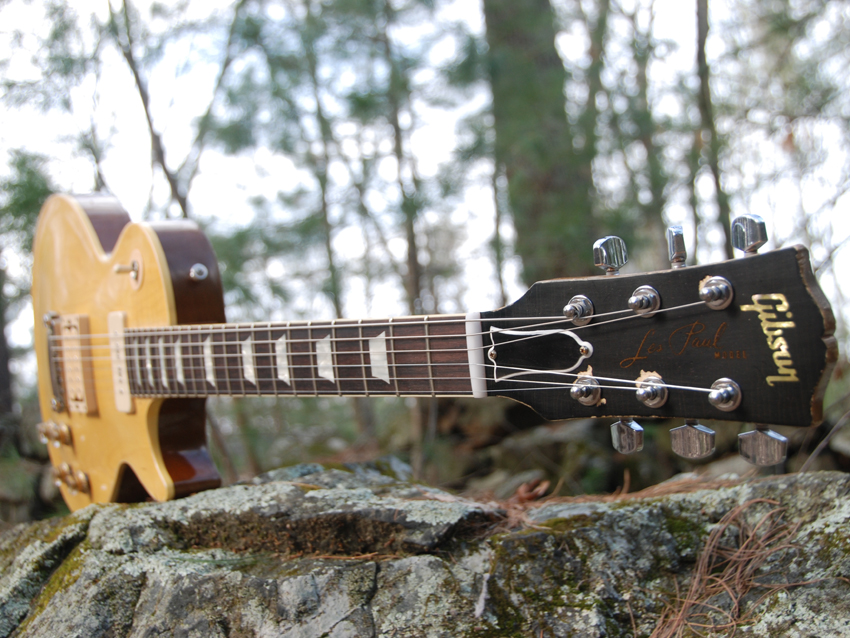
Tom Scholz talks recording, his signature Gibson Les Paul and Boston's new album
Now, you have a few Les Pauls, but this is the main one, the ‘68.
“There are two, and they’re virtually identical. It turns out that it’s a very unusual and a very rare one. I bought them both within a couple of years, used, and I had no idea that this was a tiny, limited-production run in a six-month period in 1968. I didn’t discover until late last year that the guitar was made from the 1959 Les Paul guitar run parts. They stopped making the guitar, and 1959 was the last year they made the parts, the necks and bodies. It was too expensive to make. When they took it off the market, they stored all the parts until 10 years later, roughly, when they decided, ‘Well, maybe we shouldn’t have stopped making Les Pauls.’
“They went back into production, and the first ones they made were from those 1959 parts. So my guitars, both of them, are an unlikely, just chance happening. That I should find two Goldtop Les Pauls that are both from that batch – I had no idea. I thought they were like every other Les Paul they were selling at that time in the mid-‘70s in music stores. But they weren’t – the necks are completely different.
“I was very shocked to find out, a few years later, when I tried to find a backup guitar, that I couldn’t. There was no backup guitar that felt anything like these guitars. They had completely changed the neck. So I got these two guitars, they’re virtually identical, and the one that they modeled the signature model after is basically the one I recorded the first album with.”
On recordings, are there any other guitars you use, a Strat or Tele, say, for some flavor here and there?
“No, I don’t use any other guitars on recordings. On a rare occasion, I keep a Jackson with a tremolo bar for the odd thing that requires a T-bar. But even then, I avoid it pretty much at all costs. I will even dramatically tune down a note and bend it up to do the ‘make-believe’ tremolo by hand. I did get in the habit, when I play live, of keeping the guitar tuned a little flat, so that when I do vibrato and so forth, I can control the pitch of the strings and not always have them going sharp. It does mean that I have to sometimes be cognizant and sometimes pull the neck sharp when it’s important. But I don’t really use the T-bar, so I keep the Jackson for the once-in-a-while thing.”
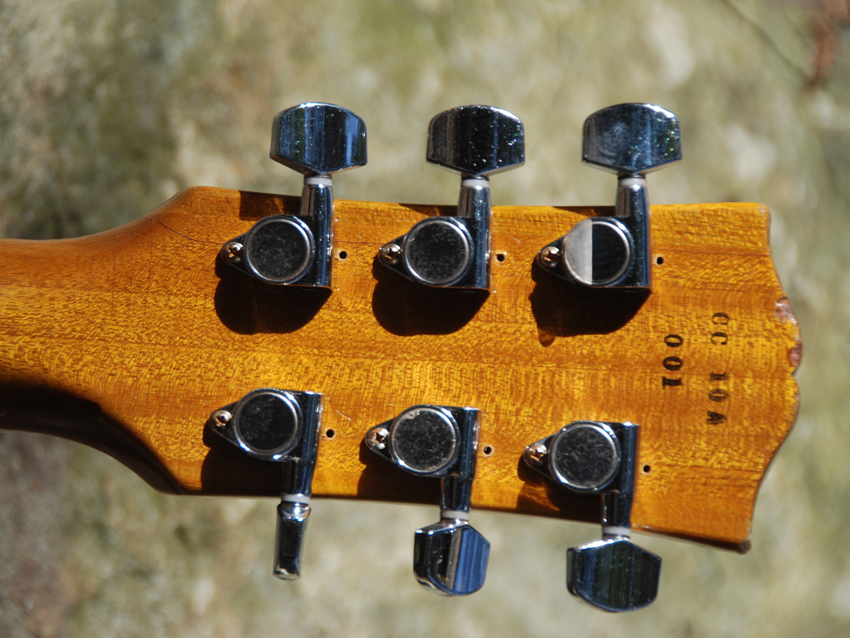
Tom Scholz talks recording, his signature Gibson Les Paul and Boston's new album
You could play any guitar that you want. What is it about the ‘68, or the two, that’s so special?
“I can tell you that it wasn’t how the guitar felt in my hand, because the first time I tried to play it, I thought it was like some other kind of instrument. It was like a bad dream. [Laughs] The neck was like a log, and the access to the upper frets was terrible. I was like, ‘Oh, my God. How do people play this thing?’ But the reason why I bought it was, I had heard the guitar being played by somebody else a few months before it was offered for sale. It was just the sweetest-sounding thing, an amazing-sounding guitar.
“So I was like, ‘All right, I’m just gonna relearn how to play the guitar.’ And I did. It took me about six months before I really felt comfortable with it. Now, if you give me a Strat or a newer Les Paul, or any of these newer guitars with thin necks, I can’t play ‘em. [Laughs] I don’t know where to put my hand. My fingers don’t go to the right place on the fretboard. Luckily, the neck size and shape is similar to the Guild acoustics that I play, so when I switch back and forth, I notice very little difference.”
How many prototypes did they send you until you were like, "That’s it!”?
“It went through a few iterations. They were very careful about getting it right. They started by making really exotic measurements on places on the neck and everything – fret height, width, all the dimensions on the neck and the body – and then they sent it to me and I went to work. I said, ‘Well, it’s off by a 32nd of an inch at the heel,’ and ‘The E string is too close to the edge at this part.’ They went back and forth, and there were about three iterations, and by the time they were done, the prototype felt exactly like my Les Paul. It also sounded just like it. It was quite amazing to see the care they took – I wasn’t sure how careful they were going to be – but they took a lot of care into physically getting the guitar right. It was beautiful.”
How come no Mighty Mouse sticker?
[Laughs] “I think there was an issue with trademark rights, with them being actually able to provide it with the guitar. I think and I’m hoping that somebody can come up with a Mighty Mouse sticker that can get approved. Mine was a bumper sticker!”
Joe is a freelance journalist who has, over the past few decades, interviewed hundreds of guitarists for Guitar World, Guitar Player, MusicRadar and Classic Rock. He is also a former editor of Guitar World, contributing writer for Guitar Aficionado and VP of A&R for Island Records. He’s an enthusiastic guitarist, but he’s nowhere near the likes of the people he interviews. Surprisingly, his skills are more suited to the drums. If you need a drummer for your Beatles tribute band, look him up.
"At first the tension was unbelievable. Johnny was really cold, Dee Dee was OK but Joey was a sweetheart": The story of the Ramones' recording of Baby I Love You
"Reggae is more freeform than the blues. But more important, reggae is for everyone": Bob Marley and the Wailers' Catch a Fire, track-by-track
"At first the tension was unbelievable. Johnny was really cold, Dee Dee was OK but Joey was a sweetheart": The story of the Ramones' recording of Baby I Love You
"Reggae is more freeform than the blues. But more important, reggae is for everyone": Bob Marley and the Wailers' Catch a Fire, track-by-track


